How to Start a Blog
Blogging is a great way to share your thoughts or grow a business. If you're wondering how to start a blog and make money, it's essential to understand its significance and potential benefits:
- Drive Traffic: Blogs can attract more visitors to your website.
- Build Connections: Engage with a broader audience and establish a community.
- Express Yourself: Share your thoughts, experiences, and expertise.
Blogs are becoming more popular. According to data from Wix, websites with blogs get 86% more visitors than those without blogs. This shows how influential a blog can be in reaching people online.
Starting a blog can also be a fun and rewarding hobby. It lets you share your ideas, discuss your experiences, and meet people with similar interests. Whether you want to boost your business or express yourself, blogging is a good option.
In short, blogging helps you get noticed online. With the right approach, you can create a blog that people will enjoy reading.

ChatGPT and Gemini don't have access to SEO data. We do!
We let AI do all the heavy-lifting with real SEO data - from keyword research and SERP analysis to citations and solid article drafts - so you can focus on publishing high-quality content that your audience, Google, and AI search engines love
Powered by data from industry-leading SEO platforms
 Learn More
Learn More
Choosing the Right Blogging Platform
Selecting the right platform is crucial when figuring out how to start a blog. Your platform needs to be user-friendly and provide the features you need.
- Ease of Use: If you’re new to blogging, consider platforms like WordPress.com or Blogger. These platforms are simple to use and require minimal technical skills, which allows you to focus on content creation.
- Customization: WordPress.org offers extensive themes and plugins for more control and personalization. This platform is ideal if you want a unique design and advanced features.
- Cost: If you want to start a blog for free, platforms like WordPress.com and Blogger offer essential services at no cost. However, if you’re aiming for more flexibility and potential to grow, a self-hosted platform like WordPress.org, which involves costs for hosting and domain names, may be worth the investment.
- Support and Community: A platform with a robust support system and active user community can be invaluable, especially if you encounter technical issues.
Your choice of platform should balance ease of use, customization, cost, and support, mainly if your goal is to start a blog for free and make money later on. Explore Smart Blogger for more insights.
Setting up your Blog
Once you’ve selected your platform, setting it up is the next step in learning how to start a blog. It involves several key components:
- Domain Name: Choose a domain name that reflects your blog’s theme and is easy to remember. This is your blog’s unique address online, so make it catchy and relevant.
- Web Hosting: Choose a reliable hosting to keep your blog accessible. Hosting services like Bluehost or SiteGround are recommended for reliability and ease of use, especially with features like one-click WordPress installations.
- Design: Choose a theme that is both visually appealing and functional. Customize the design to match your brand, and ensure it’s mobile-friendly since many of your audience will likely access your blog via smartphones.
- Essential Plugins: Enhance your blog’s functionality with plugins. For example, Yoast SEO helps optimize your content for search engines, while Akismet protects your blog from spam comments.
- AI Tools (Optional): If the technical aspects of setting up a blog seem overwhelming, consider using AI tools. Platforms like Wix offer AI-driven features that can help streamline the design and setup process.
- Initial Content: Start by creating a few posts to populate your blog. These should be engaging and informative, providing value to your target audience and encouraging them to return.
Setting up your blog requires careful planning and execution, from choosing a domain to crafting your first posts. A well-thought-out setup lays the foundation for a successful blog.
Creating Engaging and Relevant Content
Creating engaging and relevant content is crucial when figuring out how to start a blog and make it successful. Your blog posts should capture your readers' attention and provide valuable information.
- Catchy Titles: Start with a compelling title that grabs attention and accurately reflects the content of your post. A strong title can significantly increase the likelihood of clicks.
- Keyword Research: Use tools like Google Keyword Planner or Ahrefs to identify popular search terms related to your niche. Integrate these keywords into your content to improve your blog’s visibility on search engines.
- Content Structure: Organize your content with clear headings, subheadings, and bullet points. Break up large blocks of text with images or infographics to enhance readability.
- Personal Touches: Incorporate personal anecdotes or experiences to make your content more relatable and engaging. It helps build a connection with your readers.
- Originality: Ensure your content is unique and high-quality. Tools like Grammarly and Copyscape can help you maintain originality and check for errors, which is crucial for building trust with your audience.
- Call-to-Action (CTA): At the end of each post, include a CTA encouraging readers to engage further—whether by commenting, sharing the post, or subscribing to your newsletter.
Creating valuable and engaging content is essential to building a successful blog that attracts and retains readers.
You can use our free blog article idea generator to generate ideas for your blog content using AI that analyzes Google Search Results (SERPs) to recommend topics of any keyword or topic area you are looking to create content for.
Monetizing Your Blog
Many people explore how to start a blog for personal expression and create a new income stream. How to start a blog and make money involves several strategies, each with its potential benefits.
- Affiliate Marketing: Promote products or services relevant to your niche and earn a commission for every sale made through your referral links. Platforms like Amazon Associates and ShareASale offer a variety of affiliate programs to choose from.
- Sponsored Posts: Companies may pay you to write about their products or services. To attract sponsors, maintain a professional and engaging blog with a steady readership. Creating a media kit that showcases your blog’s stats and audience demographics can help secure sponsorships.
- Advertising: Display ads on your blog through networks like Google AdSense. You can earn money based on clicks (PPC) or impressions (PPI). Consider partnering directly with brands for more control over ad placements and revenue.
- Premium Content: Offer exclusive content such as eBooks, online courses, or paid subscriptions. Platforms like Patreon enable you to create a membership model where readers pay for access to unique content.
- Selling Products/Services: Leverage your blog’s audience by selling your products, consulting services, or digital downloads. It can provide a significant income stream as your blog grows.
Diversifying your monetization strategies allows you to create multiple income streams, turning your blog into a profitable venture. Read our detailed post on how to make money with a blog.
Consistency and Frequency in Posting Blogs
Maintaining a regular posting schedule is crucial when learning how to start a blog and make it successful. Consistency helps keep your audience engaged and coming back for more. It also signals to search engines that your site is active, which can improve your rankings.
According to Forbes, there is no rule on how often you should post, but a consistent schedule is vital.
- Content Calendar: Create a content calendar to plan your posts. It helps you maintain a consistent schedule and ensures you’re covering various topics.
- Quality Over Quantity: While posting frequently can be beneficial, it’s more important to maintain the quality of your content. High-quality posts that provide valuable information are more likely to engage readers and encourage sharing.
- Batch Writing: Consider writing multiple posts in one sitting to stay ahead of your schedule. This approach reduces the stress of last-minute content creation and ensures you always have fresh material ready.
- Use Analytics: Regularly review your blog’s performance using tools like Google Analytics. This data can help you understand which posts resonate with your audience and which areas need improvement.
Focusing on consistency and quality can build a loyal readership and improve your blog's performance over time.
Making Your Blog Successful
Creating a successful blog involves more than just writing posts.
- SEO Optimization: Use relevant keywords, optimize your meta descriptions, and ensure your site loads quickly. These steps are crucial for improving your blog’s ranking on search engines. For more detailed SEO techniques, check out Hostinger's guide on SEO.
- Email List: Build an email list to maintain direct communication with your audience. Tools like Mailchimp or ConvertKit can help you manage your email campaigns effectively.
- Social Media Promotion: Share your blog posts on platforms like Facebook, Twitter, and LinkedIn. Engaging with your audience through these channels can drive significant traffic to your blog. According to Hostinger, promoting your blog on social media and online forums is an excellent way to find your audience and connect with them.
- Guest Posting: Write guest posts on other blogs in your niche to build backlinks, expose your content to a broader audience, and collaborate with influencers.
By implementing these strategies, you can significantly increase your blog's visibility and success, whether you're learning how to start a blog or how to start a blog and make money.
Bonus Tip: Starting a Blog for Free
If you're curious about how to start a blog for free, several options are available that make it easy to begin without a financial investment. The first step is to choose a free blogging platform.
- Free Platforms: Choose a free blogging platform like WordPress.com, Blogger, or Wix. These platforms offer free basic features, making them ideal for beginners.
- Domain Name: Free platforms typically provide a subdomain (e.g., yourblogname.wordpress.com). While not as professional as a custom domain, it’s a good starting point for those new to blogging.
- Design: Utilize free themes and templates to create an attractive, user-friendly blog. Customize the design to reflect your personality or brand.
- Content Creation: Focus on producing high-quality content using free tools like Grammarly for writing and Unsplash or Pexels for images.
- Promotion: Promote your blog on social media and engage in online communities related to your niche. Consistency in promotion can help you build an audience without spending money.
With dedication and resourcefulness, you can start a blog for free and gradually grow it into a successful platform, with the potential to monetize as your audience grows.
In A Nutshell
Starting a blog offers a great way to express yourself, grow a business, or generate income. By choosing the right platform, designing thoughtfully, and consistently creating valuable content, you can build a blog that resonates with your audience.
Whether figuring out how to start a blog for free or aiming to start a blog and make money, focusing on SEO, promotion, and monetization will help you turn your blog into a successful venture.
Success depends on consistency, quality, and engagement—no matter how you begin, your blog can become a powerful tool to achieve your goals.

.png)

